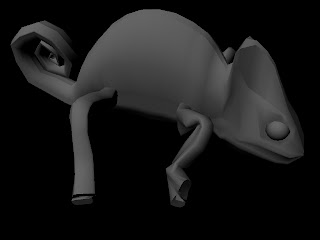Push & Pull animation references
http://www.youtube.com/watch?v=z2OLVxKPR6g
Push block into wall
http://www.youtube.com/watch?v=PJC2iDH1hyM&NR=1
Push wall
http://www.youtube.com/watch?NR=1&v=XYcmiNbYkjQ
Pull door
http://www.youtube.com/watch?NR=1&v=6dT3fJQMEsc
Pull large cap from wall
A blog for my work, research and references at Deakin University, personal projects and interesting articles on animation, photography, design and art. I have completed my Bachelor of Creative Arts (Graphic Design) and publish my old assignments and essays here.
Thursday, October 13, 2011
Sunday, October 9, 2011
news articles
http://blog.media-freaks.com/dragon-the-stage-musical/
How to Train Your Dragon Musical
How to Train Your Dragon Musical
Saturday, October 8, 2011
Wednesday, October 5, 2011
adding sound to maya
http://kakes3d.wordpress.com/2010/05/24/adding-sound-to-the-animation-timeline-in-maya/
For sound effects and background music, it’s probably much easier to
export your Maya animation as a sound-less movie or numbered stills and
add sound in Premiere. But if the music dominates the timing of your
animation, you want key in frames as you listen to the sound playing in
Maya’s playback mode.
To add music to Maya’s animation timeline:
1. Go to File => Import and locate your music file (eg: .wav) and hit OK.
2. Right click the timeline and select Sound => your music file.
You will see waves in the timeline to indicate there is music/sound. The music will play when you play your animation in Maya as long as your animation play-back setting is not set to play every frame.
If the music doesn’t play when you hit play, hit the settings icon ( ) at the bottom right of the window.
) at the bottom right of the window.
If you want to work in PAL, go to the Settings tab of the Preferences window that pops up and change the Working Units: Time to PAL (25fps). Then in the Time Slider tab, change the Play-back speed to Real time (25fps).
Adding sound to the animation timeline in Maya
Posted by: Kakes on: May 24, 2010
To add music to Maya’s animation timeline:
1. Go to File => Import and locate your music file (eg: .wav) and hit OK.
2. Right click the timeline and select Sound => your music file.
You will see waves in the timeline to indicate there is music/sound. The music will play when you play your animation in Maya as long as your animation play-back setting is not set to play every frame.
If the music doesn’t play when you hit play, hit the settings icon (
If you want to work in PAL, go to the Settings tab of the Preferences window that pops up and change the Working Units: Time to PAL (25fps). Then in the Time Slider tab, change the Play-back speed to Real time (25fps).
Monday, October 3, 2011
Exporting jpegs (screenshots) from maya
Maya - export jpeg
http://answers.yahoo.com/question/index?qid=20071002150535AAwdpEm
"In Maya, to create a JPG file, you need to render the scene first by clicking the render view button. This button is located on the top menu bar and resembles a cinema clap board or a square Pac-Man if you will. You will notice that there are 3 different types of this board, the one you want for jpg is the first one. After the scene has rendered in it's own window, click File->Save As and name it, choose location and choose file type. Study more on the types of renderer's you have available to you.
To create an AVI, you will need to use the Maya renderer. The 3rd clap board in the menu bar is your render options window. In the first section before you, you will see a section called image format. Choose avi. In the File Name Prefix box, name your file. Take note at the location the file will be saved at in the black text just above the name box.
There you go, good luck and have fun learning."
http://answers.yahoo.com/question/index?qid=20071002150535AAwdpEm
"In Maya, to create a JPG file, you need to render the scene first by clicking the render view button. This button is located on the top menu bar and resembles a cinema clap board or a square Pac-Man if you will. You will notice that there are 3 different types of this board, the one you want for jpg is the first one. After the scene has rendered in it's own window, click File->Save As and name it, choose location and choose file type. Study more on the types of renderer's you have available to you.
To create an AVI, you will need to use the Maya renderer. The 3rd clap board in the menu bar is your render options window. In the first section before you, you will see a section called image format. Choose avi. In the File Name Prefix box, name your file. Take note at the location the file will be saved at in the black text just above the name box.
There you go, good luck and have fun learning."
Subscribe to:
Comments (Atom)
